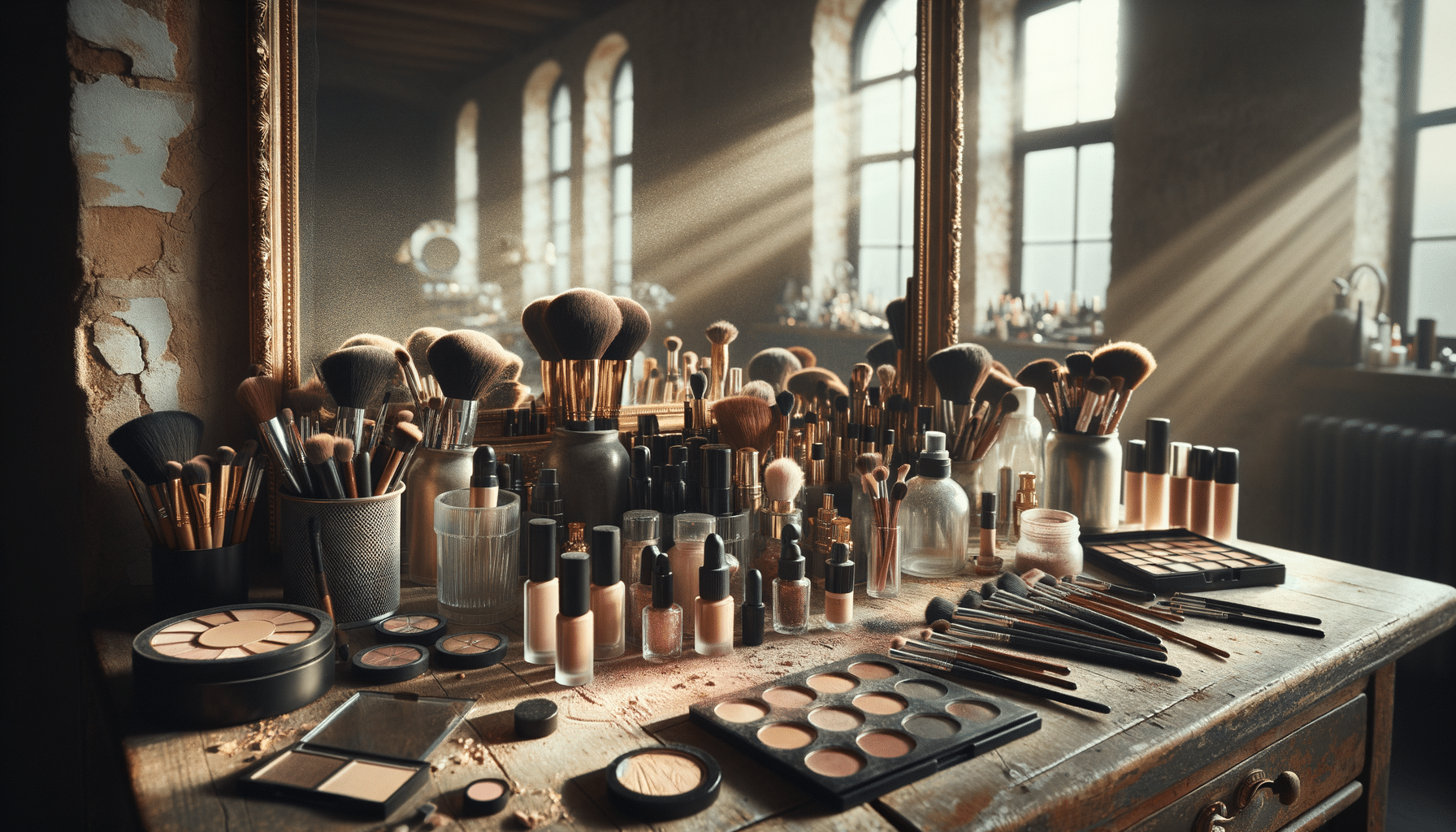
Learn About Different Makeup Styles and Methods
Introduction to Makeup Courses
In today’s dynamic world of beauty, makeup courses stand as a gateway to unleashing creativity and professionalism. These courses cater to individuals who wish to delve into the intricacies of makeup artistry, whether for personal enrichment or a professional career. They offer a structured approach to understanding the nuances of makeup application, from the basics to advanced techniques. With a growing demand for skilled makeup artists in various industries, such as fashion, film, and bridal, these courses provide the essential foundation and specialized skills needed to excel.
Makeup courses are designed to accommodate varying levels of expertise, from beginners eager to explore the art of makeup to seasoned artists seeking to polish their skills. They cover a wide range of topics, including skin preparation, color theory, and the use of different tools and products. Participants can expect to learn about various makeup styles, such as natural, evening, bridal, and editorial looks. The courses often combine theoretical knowledge with hands-on practice, allowing students to develop their unique style and approach.
Moreover, makeup courses often emphasize the importance of hygiene, client communication, and business acumen, equipping students with the tools necessary to succeed in a competitive market. By enrolling in a makeup course, individuals not only enhance their technical skills but also gain confidence in their artistic expression, opening doors to numerous career opportunities in the beauty industry.
The Structure of Makeup Courses
A comprehensive makeup course is structured to provide a balanced mix of theory and practical application. Typically, courses are divided into modules that cover essential aspects of makeup artistry. The initial modules usually focus on the basics, such as understanding different skin types, face shapes, and color matching. This foundation is crucial for any aspiring makeup artist, as it forms the basis for all subsequent learning.
As students progress, they delve into more advanced techniques, learning about contouring, highlighting, and creating various looks. These modules often include demonstrations by experienced instructors, followed by practice sessions where students can apply what they’ve learned. This hands-on approach ensures that students are comfortable with the tools and products, allowing them to experiment and refine their skills.
In addition to technical skills, makeup courses often include lessons on client interaction and business management. These are vital for those looking to establish a freelance business or work in a salon. Students learn how to conduct consultations, understand client needs, and provide personalized makeup solutions. Business modules may cover topics such as pricing, marketing, and building a client base, equipping students with the knowledge to thrive in the industry.
Exploring Different Makeup Styles
Makeup courses offer an exciting exploration of various makeup styles, each with its unique techniques and applications. One popular style is the natural look, which focuses on enhancing the client’s features subtly. This style requires a keen understanding of color theory and an ability to blend products seamlessly to create a flawless finish.
For those interested in more dramatic looks, courses often cover evening and editorial makeup styles. These styles allow for greater creativity, as they often involve bold colors, intricate designs, and the use of specialized products such as glitter and false eyelashes. Students learn to create striking looks that stand out, whether for a photoshoot or a special event.
Another significant area is bridal makeup, which combines elements of both natural and dramatic styles. Bridal makeup courses teach students how to create timeless looks that photograph well and last throughout the day. This involves understanding the client’s preferences, the wedding theme, and the venue’s lighting conditions.
By exploring these different styles, students can identify their strengths and preferences, allowing them to specialize in a particular area of makeup artistry. This specialization can be a significant advantage in the beauty industry, where clients often seek artists with specific expertise.
Choosing the Right Makeup Course
With numerous makeup courses available, selecting the right one can be daunting. Prospective students should consider several factors to ensure they choose a course that aligns with their goals and interests. One crucial aspect is the course’s accreditation and the reputation of the institution offering it. Accredited courses are more likely to provide comprehensive training and are often recognized by industry professionals.
Another consideration is the course content and structure. Students should look for courses that cover a broad range of topics and offer practical experience. This ensures that they not only learn the theory but also have ample opportunity to practice and refine their skills. Additionally, courses that provide access to industry-standard tools and products can be beneficial, as they prepare students for real-world scenarios.
It’s also essential to consider the instructors’ expertise and experience. Courses taught by seasoned professionals can offer valuable insights and mentorship, helping students navigate their career paths. Lastly, prospective students should consider their career aspirations and choose a course that offers specialization in their area of interest, whether it’s fashion, film, bridal, or another field.
By carefully evaluating these factors, individuals can select a makeup course that provides the knowledge and skills needed to succeed in the beauty industry.
Conclusion: The Impact of Makeup Education
Makeup courses play a pivotal role in shaping the future of the beauty industry. They provide aspiring artists with the skills and knowledge needed to excel in their craft, whether they aim to work in fashion, film, or bridal makeup. These courses offer a structured learning environment where students can explore different styles, refine their techniques, and develop their unique artistic voice.
Moreover, makeup education extends beyond technical skills. It fosters creativity, encourages self-expression, and builds confidence. By learning from experienced instructors and practicing in a supportive environment, students gain the confidence to take on new challenges and push the boundaries of their artistry.
As the beauty industry continues to evolve, the demand for skilled makeup artists remains strong. By investing in education, individuals can position themselves as experts in their field, opening doors to exciting career opportunities. Whether it’s creating stunning bridal looks, bold editorial styles, or natural everyday makeup, the possibilities are endless for those who pursue their passion through makeup courses.


